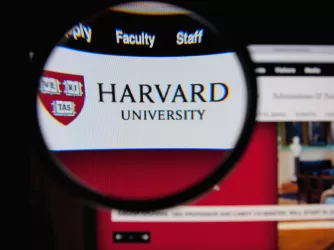Table of Contents
On Free Speech, Double Standards, and Professor Mike Adams

Mike Adams, a professor at the University of North Carolina Wilmington (UNCW), is no stranger to controversy.
In 2014, Adams won a First Amendment lawsuit alleging that UNCW retaliated against him for his public expression of conservative views. Now, Adams once again finds himself at the center of a debate over the boundaries of free speech—but this time the university appears to be squarely on the side of free speech, and will hopefully stay that way.
In September, Adams published an article harshly criticizing a UNCW student who received a visit from the Secret Service after she posted on Facebook that “[y]’all are not prepared for what I’m about to do” at an upcoming Donald Trump rally on campus. Adams was not kind to the student in his article. He called her a “confused teenager” who, by describing herself as a “queer Muslim social justice warrior,” was putting on “an act designed to fit into as many victim categories as humanly possible.” It is certainly understandable why the student was offended by Adams’ piece.
Now, however, Adams is being accused of far more than mere offensiveness. Multiple groups have referred to his article as “harassment,” and there is a petition with over 4,000 signatures calling for his removal from UNCW. In addition to the September article, Adams’ opponents are pointing to his long history of controversial comments about race, religion, and sexuality in the news and on social media.
Thankfully, UNCW is standing up for Adams’ right to free speech. In a statement to The Daily Beast, the university said:
Dr. Adams’s online column and social media presence represent his personal expressions and opinions on a variety of topics. These expressions and opinions are neither within the requested scope of Dr. Adams’s duties with the university, nor do they represent the views of this institution. However, they are expressions protected by the First Amendment to the United States Constitution.
UNCW clearly learned its lesson from Adams’ successful lawsuit (in one portion of which FIRE joined the American Association of University Professors and the Thomas Jefferson Center for the Protection of Free Expression in filing an amici curiae brief about the importance of faculty free speech rights). It is rare to see a university come down so squarely on the side of free speech in the face of public pressure. Indeed, the past several years have been rife with examples of faculty members facing disciplinary action for their political speech:
- In 2013, University of Kansas professor David Guth was suspended after he posted a tweet—in the wake of a mass shooting—that said, of the National Rifle Association, “Next time, let it be YOUR sons and daughters. Shame on you. May God damn you.”
- In 2014, the University of Illinois at Urbana-Champaign rescinded a job offer to Steven Salaita over his controversial tweets about the Israeli-Palestinian conflict. His tweets included comments such as, “By eagerly conflating Jewishness and Israel, Zionists are partly responsible when people say antisemitic shit in response to Israeli terror.” Salaita sued the university and settled for a reported $875,000.
- Just last month, Oberlin College dismissed Joy Karega, an assistant professor, following inflammatory statements she made on Facebook. Among other things, Karega said that ISIS was “a CIA and Mossad operation” and shared posts suggesting that prominent Jews “own your news, the media, your oil, and your government.”
And currently, an administrator at Ohio State University (OSU) is the subject of an online petition calling for her firing because of a Facebook post in which she called for “compassion” for a student who perpetrated a violent attack—reportedly inspired by ISIS—at OSU on Monday. The university has so far defended her right to free speech, telling The Washington Post that the Facebook post “clearly is not an official statement of the university and represents her own personal viewpoint.”
As Adams’ and these other examples clearly illustrate, individuals come under fire for public comments representing viewpoints from across the political spectrum. This is why it is so important to defend the principle of free speech without regard to one’s personal feelings about the views being expressed. I wonder: Would those who signed the petition calling for Adams’ removal also sign the petition for the OSU administrator’s removal, or vice versa? Or are their actions motivated purely by their dislike of the particular views each speaker is expressing?
I highlight the obvious parallels in all of these cases in the hope that more people will come to understand the critical importance of consistency on the issue of free speech. Too often, universities—and the general public—have a double standard: They wax poetic about freedom when their side is under fire, but remain silent, or even call for censorship, when the shoe is on the other foot. If eleven years at FIRE have taught me one thing, it is that the shoe will always find its way to the other foot. Which is why, for free speech and open debate to truly flourish on campus and beyond, this double standard needs to end once and for all.
Recent Articles
FIRE’s award-winning Newsdesk covers the free speech news you need to stay informed.

Revoking Harvard’s tax-exempt status will threaten all nonprofits

Grandpa’s advice for the new wave of American censors

FIRE POLL: Only 1/4 of Americans support deporting foreigners for pro-Palestinian views
